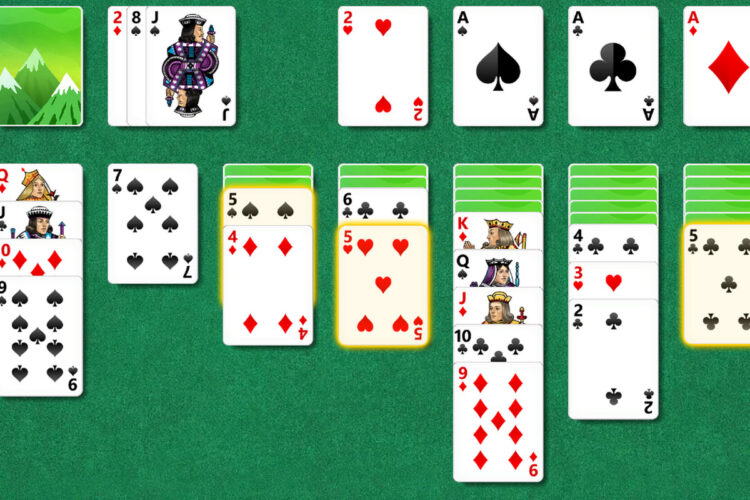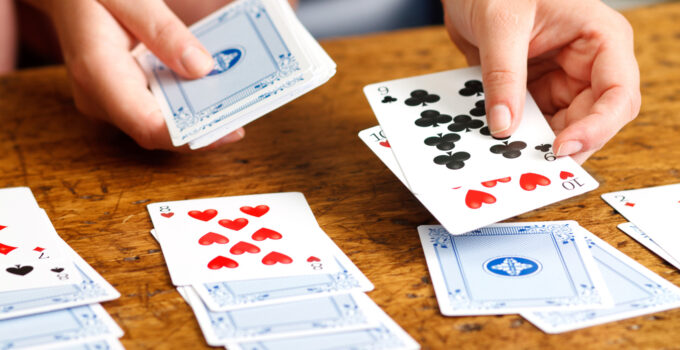Solitaire, also known as patience, has a rich and fascinating history that spans centuries and continents. While its origins are not entirely clear, it is believed to have been invented in medieval Europe as a form of entertainment for the nobility. The game was played with real cards and involved moving them around on a table to create patterns and sequences.
The Evolution of Solitaire

Source: seniors.lovetoknow.com
Solitaire evolved over time, with different variations emerging in different parts of the world. In the 18th century, a version of solitaire known as “Patience” became popular in England. This version involved moving cards around on a table in a specific order to create four different piles. It was said to have been a favorite game of Napoleon Bonaparte during his exile on the island of Saint Helena.
In the late 19th century, solitaire was introduced to America, where it quickly became a popular pastime. The game was initially known as “Klondike” and was played with a standard deck of 52 cards. It gained widespread popularity during the gold rush of the late 1800s, as miners played the game during long, lonely nights in their cabins.
The popularity of solitaire continued to grow throughout the 20th century, with different variations like “Spider” and “Freecell” becoming popular in the 1980s and 1990s. With the rise of personal computers, solitaire became one of the most popular games included in early versions of the Windows operating system.
In the years since its inclusion in Windows, solitaire has undergone a digital transformation and become a digital phenomenon. It is now available on a variety of platforms, including smartphones, tablets, and gaming consoles. Players can choose from a wide range of variations and game modes, including timed challenges, daily challenges, and multiplayer modes.
Despite its evolution and digital transformation, solitaire remains a beloved game that has stood the test of time. Whether you’re playing with real cards or on your phone, the game’s simple yet challenging gameplay continues to captivate players of all ages and backgrounds.
The enduring popularity of solitaire can be attributed to several factors. For one, it is a game that can be played alone or with others, making it a versatile choice for different situations. It also requires minimal equipment, making it easy to play on the go or in a variety of settings.
Another reason for solitaire’s popularity is its accessibility. The game is easy to learn and can be played at different skill levels, from beginner to advanced. This makes it a great choice for people of all ages and abilities.
But perhaps the biggest reason for solitaire’s enduring appeal is its ability to provide a sense of relaxation and escape. Whether you’re playing to pass the time, relieve stress, or simply unwind after a long day, solitaire’s engaging gameplay and soothing aesthetic make it a great choice for anyone looking to disconnect from the world for a little while.
Conclusion

Source: applemagazine.com
In conclusion, the fascinating history of solitaire is a testament to its enduring popularity and appeal. From its humble origins as a royal pastime to its current status as a digital phenomenon, solitaire has adapted and evolved to fit changing times and technology. So whether you’re a seasoned player or just starting out, there’s never been a better time to discover or rediscover the timeless appeal of solitaire.




